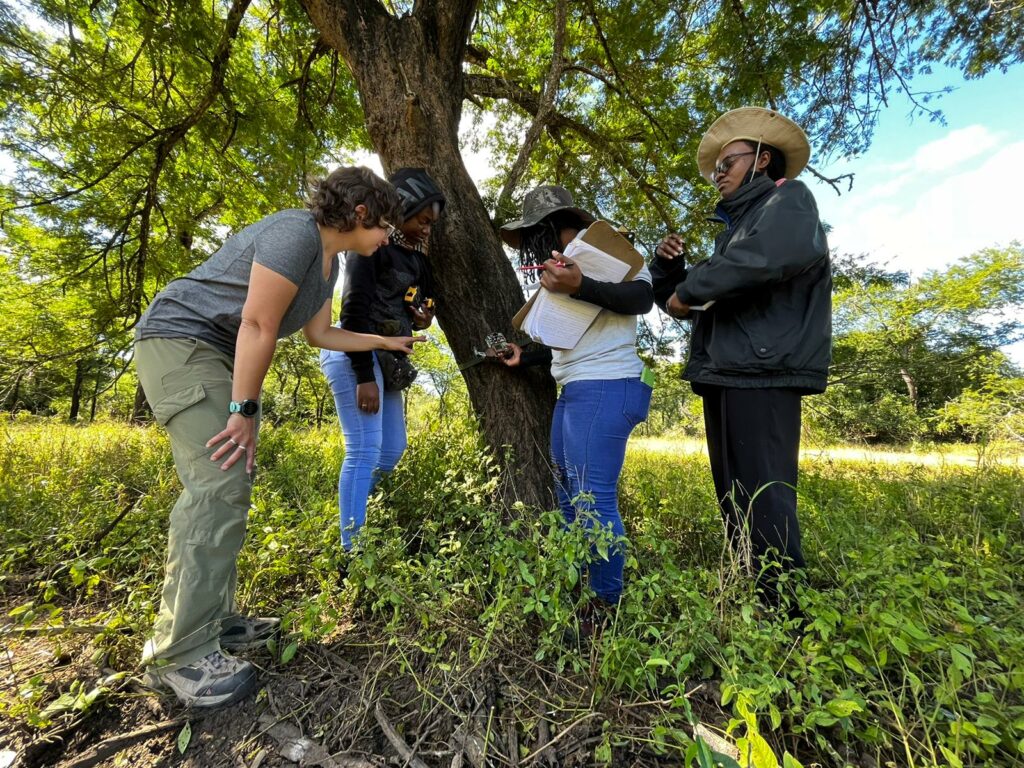Kaitlyn studies how animals interact with their environments and with each other, and how humans impact these interactions.
Kaitlyn trained as a behavioral and community ecologist during her PhD at the University of California, Berkeley, where her work in both the United States and Mozambique focused on understanding the roles and impacts that people have on ecological systems, and in particular, how humans have changed large animal behavior and distribution.
Kaitlyn is motivated by a fundamental interest in understanding how animals think and behave. She is also driven to explore how human activity is creating ripple effects of change across entire ecosystems, as species adapt to human impact on the planet.
As a Schmidt Science Fellow, Kaitlyn pivoted from field ecology research into environmental data science. Based at the National Center for Ecological Analysis and Synthesis (NCEAS) at the University of California, Santa Barbara for her Fellowship year, Kaitlyn developed new skills in programming and analysis. She created interactive web platforms for analyzing and visualizing raw data, partnered with experts in machine learning to speed data processing, and synthesized data from across ecosystems to better understand the dynamics of wildlife recovery in altered environments.
She is now an Assistant Professor in Zoology and Botany at the University of British Columbia in Vancouver, Canada. She is continuing to conduct synthetic research to explore the impacts of human activity on biodiversity at regional and global scales. This research on the ecological dynamics of human-wildlife interactions has the potential to inform conservation and coexistence.

